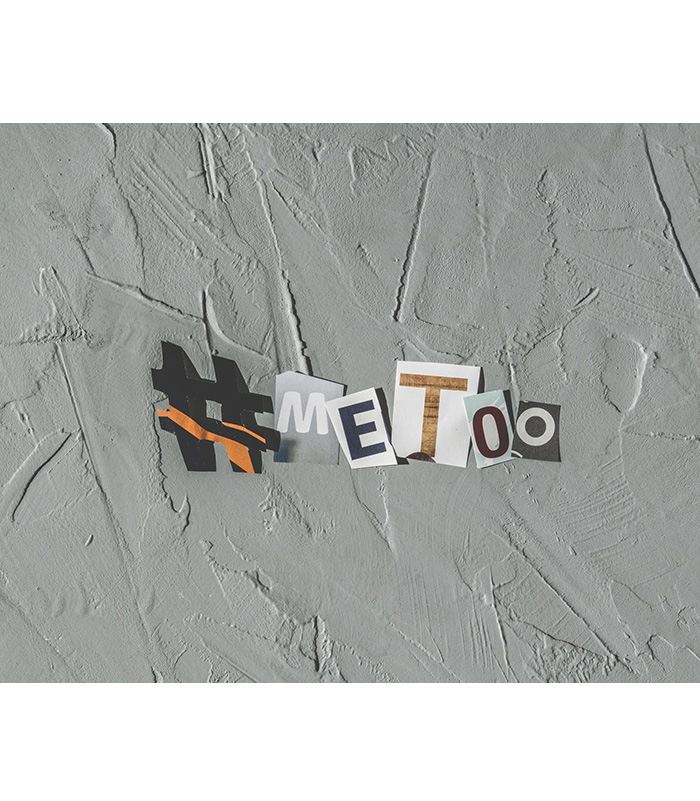As mentioned in my previous blog, it’s been a minute since I’ve made a post on my blog — in part because I broke my laptop and therefore had no workspace, but also in part because I knew I wanted to write this blog, and it is a bit of a mountain to take on. It’s also a bit of a novel to read, so if you read through the whole thing, thank you.
The last few weeks have been a challenge for my composure in a variety of ways.
In the wake of the “reckoning” of women coming forward with their stories of harassment, assault, or rape, I’ve heard an overwhelming dirge of doubt coming from those around me – which has both infuriated me, deeply saddened me, and good God – frustrated the hell out of me. I’ve heard things from people close to me that have left me stunned, and ultimately, incredibly disappointed. I didn’t expect to hear people close to me disparage the women who are coming forward, and defend the men being accused.
Sexual assault, harassment, and rape are collectively a topic in itself that never fails to enrage me, as it should – thinking about the way our society treats sexual assault and the women who come forward with these stories is infuriating in a way that is suffocating, and these last few weeks have felt like trying to take a deep breath while submerged in the ocean.
Most of these phrases or questions I’ve heard from people almost sound like the easy way out. Like if we pretend that we don’t understand what’s happening, or if we act like we don’t believe these women, then maybe we don’t have to reconcile ourselves with the fact that we live in a world where this not only happens to women, but it’s a daily occurance. Maybe if we allow ourselves to doubt, we don’t have to try to understand. Maybe if we’re defensive, we won’t have to be offensive.
To me, the answers to some of these questions are so devastatingly clear that it’s hard to imagine people can ignore these answers – but I recognize that some people haven’t experienced some of the things I have, some people haven’t heard the stories I have, and some people haven’t had the same educational experiences I have.
I could write a novel on the experiences of sexual harassment I’ve had in my life – probably several, in fact. Off the top of my head, I could list five women I personally know who have been raped, and probably more than that. I’ve gotten to the point where hearing about this shit just isn’t shocking to me anymore – and why would it be? It’s all around us, if we’re paying attention. And some people don’t have the luxury of ignorance.
So in the past few weeks, with every woman who’s taken a step forward with her story, I have 100 percent, unfailingly, without-a-doubt believed her. Because though we don’t share the same stories, we have shared the same silence. And I am glad to finally hear their voices.
But along with this, as I’ve mentioned, have come statements and questions from people close to me that I have had trouble keeping calm in response to.
So here they are, and here are my answers.
You’ll find that below, I discuss harassment, assault, and rape in most of the answers. I recognize that the majority of women who have come forward have dealt with workplace harassment, though some were assaulted and raped. While harassment, assault, and rape are very different, I strongly believe that the way we talk about one affects the way we talk about the others, and my point is to address the dialogue circling all three of these, as the ways we discuss them are very similar.
What’s the big deal? It’s a compliment.
It’s not a compliment, and it’s not meant as a compliment, either.
It’s a power play.
Sexual assault, harassment, and rape are not about desire. They are about power.
Which is why it’s not a surprise that celebrities, directors, and politicians are being accused — all people in pursuit of or holding positions of power. That’s not to say everyone in pursuit of power or status is a monster, but it’s not a coincidence that people who harass or assault and have gotten away with it continue to pursue power and authority, and more than that – abuse it.
Sexual harassment, assault, and rape are a direct result of the attacker’s need for dominance and control. They are the result of the attacker’s need to wield power over another human being – not to flatter them, and not to compliment them.
Compliments are given without the expectation of anything in return. Compliments are given because the complimentor would like to say or do something nice for the complimentee without any expectation of getting anything in return.
That’s not what this is, not at all.
I can’t feel bad for women who have slept their way to the top.
There is no consent in harassment, assault, or rape. There is no choice.
There is no act of “sleeping your way to the top.”
Consensual sex with someone is so incredibly different than assault or rape, it’s hard for me to fathom that someone could actually associate any of these women’s stories with “sleeping their way to the top.”
There is no move for power from the victim. There is an indescribable shame, powerlessness, and fear that comes along with being harassed or assaulted. And that is exactly what the harasser wants.
These women aren’t gaining anything by being harassed. They are not sleeping their way to the top. They are being assaulted. And we have the power to do something to prevent these things from happening – but not if we brush off their stories, not if we call them liars, and not if we consider their stories as being about them “sleeping to the top.”
Are all men supposed to be afraid now?
If you are a man who has sexually assaulted, harassed, or raped a woman, you should be scared out of your goddamn mind. And isn’t that how it should be? Shouldn’t we live in a society where people are afraid to do those monstrous things?
But if you are a man who has not committed any of these heinous acts, then to pretend like this issue is woman vs. man is contributing to the longevity of this issue. This problem is a rapist/attacker/harasser vs. victim problem, and it’s about damn time we held these attackers accountable, instead of pretending that the issue doesn’t exist. It’s time we looked out for our own, and gave justice – real, legitimate justice – to our people. It’s time we stopped allowing harassers and assaulters to come for our people. It’s time we held people accountable for their actions. It’s time we put a stop to this, at the root. But we can only do that if we acknowledge the problem.
She’s just trying to get attention.
For some reason, there’s a common misconception that women can somehow attain fame or positive attention by coming forward with a story of harassment, assault, or rape.
I’m not sure where that idea came from, or why it’s believed for even a second.
All it takes is one look at the way we treat victims when they come forward to see that there is no personal benefit to the woman. Even this statement is proof – a woman comes forward with her story of assault, and she’s first described as trying to get attention. Some people will do anything to not allow themselves to believe her – calling her a slut or whore, saying she was asking for it, adamantly calling her a liar, acting as if this is some kind of publicity stunt.
Women who come forward are dragged through the mud for it – there is no glamour in being assaulted or in telling your story, not even a little bit. Women are often ostracized from their communities, and if your attacker is an athlete or someone of status, the social expulsion is far worse.
And if she reports the harassment or assault, she’ll be asked a slew of victim-blaming questions that ultimately boil down to, “Were you asking for it?”
If she was raped and reports it, she’ll undergo an exam that could last for hours, in which she’ll be examined and prodded in the same places she was just violated. And then, once the rape kit is complete, it will likely sit on a shelf for years, without any action from our judicial system.
And if by some miracle, her case actually moves forward and a judge chooses to believe her, her rapist will get 6 months and only serve 3.
Even if they do believe her, people will cling to every detail of her story and desperately look for ways to tell her she did something wrong, instead of looking at the horrendous wrong done to her. People do this out of some kind of subconscious self-defense. People who ask why she didn’t fight back, why she didn’t escape, why she didn’t scream, why she didn’t do a certain action, or why she did a certain action are trying to prove to themselves that this couldn’t possibly happen to them, because they would know better, they would make better decisions. If this woman was assaulted because she was walking down the street alone at night, then I won’t walk alone at night, and it couldn’t possibly happen to me. If she was assaulted in a skirt, then I’ll wear jeans and it won’t happen to me. I’ll be different, I’ll act differently, and it won’t happen to me. It can’t happen to me.
While writing case studies on torture victims, fundraiser and British celebrity Abigail Burdess noticed the self-blaming language she saw victims using after their rape. She asked a psychologist about this, and their response about the victim was this:
“To stop blaming herself, she would have to face the power of the perpetrators over her. And she is not strong enough to face her powerlessness.”
Writer Suzannah Weiss analyzes this statement.
“In other words, what we cannot control, we cannot prevent – and rape victims want to believe they can avoid another assault. Similarly, people who have not been raped want to believe it couldn’t happen to them, so they come up with reasons why they are different from the victim.”
People will do anything to make themselves believe they could never become a victim, even if it means doubting actual survivors, or suggesting the victim was to blame.
But blaming the victim for the actions of the attacker will never get us anywhere.
None of this is in any way encouraging for women to come forward; and I believe the women brave enough to do so are absolutely telling the truth. There are not women coming forward with made up stories they’re telling just for kicks. These are women coming forward in hopes that if they speak up, someday another woman won’t have the same story to tell.
Why didn’t she speak up sooner? Why now?
Women are conditioned to be silent about this, and if the remaining fear from being harassed or assaulted isn’t enough to keep you quiet, the shame probably is. As mentioned above, as a society, we’ve proven that we’re willing to shut out the words of victims for our own sanity.
Additionally, as most harassers and assaulters are doing this for power, it’s highly likely that they have in some way emotionally manipulated or threatened the victim – “If you tell anyone, you’ll be fired,” “If you tell anyone, you’ll regret it,” “If you tell anyone, no one will believe you.”
Quite frankly, we’ve given women no reason to come forward with their stories. Our society will ostracize them, and our judicial system will not give them justice. If we build a system in which assaulters and rapists get away with it, and in which our society will look down on and ostracize the victim, then why would anyone come forward? Obviously women should come forward, but what have we done as a society to make it acceptable for women to come forward? If someone has already been through something traumatic like assault, why would they tell their story, only to be battered by the media and in the words of their community, and to see their rapist or assaulter stroll through our judicial system and walk free?
That’s the society we live in, and we are given choices everyday to change that. Everyday, we have the opportunity to put a new foot forward, recognize that this is a devastating issue that needs to be addressed, and to start believing victims who come forward.
If for some reason you find it hard to believe that the justice system would just let attackers walk free, let this fact from the Rape, Abuse, and Incest National Network (RAINN) percolate: Only 6 out of every 1,000 rapists will be incarcerated. That’s .6 percent. Not 60 percent. Not even 6 percent. Our judicial system puts .6 percent of rapists behind bars. Comforted yet?
So that’s why she didn’t speak up sooner. Because our society and the execution of the laws of our land will not protect her. In her eyes, the only one who can protect her now is herself.
So why does she choose to come forward now?
Imagine someone has harassed, assaulted, or raped you. It will never go away for you. It will always stay with you.
Every morning you wake up, the memory is there. Every day you walk down the street, it’s there. Every night you return home, it’s there. You cannot shake it from you, much as you’d like to. The waves of anxiety that crash over you will ebb but they will not disappear. The fear you have will never disintegrate.
Then imagine one day you see a headline that your assaulter is running for office. Would you want that person to have more power? Would you want that person to continue to walk free, to hold even more power over even more people? If you thought that in sharing your story, you could prevent that person from doing more harm to more people, would you step forward?
Men who harass, assault, or rape have no place in public office; they have no place in positions of power. Women who felt unable to come forward immediately after their harassment or assault might feel compelled to come forward if they know they can prevent a monster from holding office, or from holding power over anyone else.
And now, with the “reckoning,” women have become empowered by other women to come forward.
She waited to tell her story because there was no place for her in our society to do so – she’s telling it now because other women have created that place.
She’s lying. So many of them do.
She’s not lying.
Considering the above novel-length paragraphs, there are very few motivating factors in this country for a woman to actually come forward with an accusation of harassment, assault, or rape.
In fact, 70 percent of women who are sexually assaulted will never report their rape to the police. If you take a look at the statistics of college-aged women, who are the most likely to be assaulted (1 in 4 college-aged women will be raped), the statistic jumps ten percentage points – 80 percent of college-aged women who are raped will never report it.
Meanwhile, the statistics on false rape accusations are a little more shaky, and contested amongst researchers, though most state that somewhere between 2 to 8 percent of rape accusations are false.
So if 2 to 8 percent of accusations are found to be false, but we’re not even hearing about 70 to 80 percent of rape cases, how can we allow ourselves to brush off the accusations of women coming forward? How can we brush away the 70 to 80 percent who are silent, and the 20 to 30 percent who are not, just because of the 2 to 8 percent?
I’m obviously not condoning the actions of those 2 to 8 percent – the damage they are doing to the dialogue and progress that actual victims need is horrible. However, I can’t find it in me to write off the actual victims of sexual violence and harassment, due to the tiny percentage of women who are found to have made false accusations. One woman’s lies do not deny another woman’s right to justice.
Do you think they knew what they were doing?
Yes. They knew what they were doing, and they actively made those decisions. It was intentional. They knew exactly what they were doing.
And there is nothing to stop those people, and others like them, to continue making those decisions, unless we begin holding them accountable and serving them justice like we should be.
If we call the women coming forward liars, if we doubt survivors who share their stories, then who will we believe? Will we wait for it to be us? Our family? Our friends? Our neighbors? Because odds are, it already is your family, your friends, your neighbors. Odds are, they are the 70 percent who will be quiet.
We have choices to make – decisions that may seem small, but will shape this country, our world.
So here I am, today, on this blog, saying #MeToo.
Let’s stop meeting this phrase with #NotAllMen, because it may not be all men, but it is damn near all women.
The question isn’t truly if women are experiencing harassment and assault, because we are. The question is if the world is willing to ignore it for the benefit of their ignorant bliss, and if we can expect a chorus of #MeToo’s from the generations to come.
I pray to God not.
So now what?
If at the end of this article, you’re still wondering what you can do, start by acknowledging the problem.
Then take a look at this resource from RAINN, that describes the roles people can take in preventing sexual assault.
Or, you can check out this page to see how you can affect policy changes.
Social Media:



